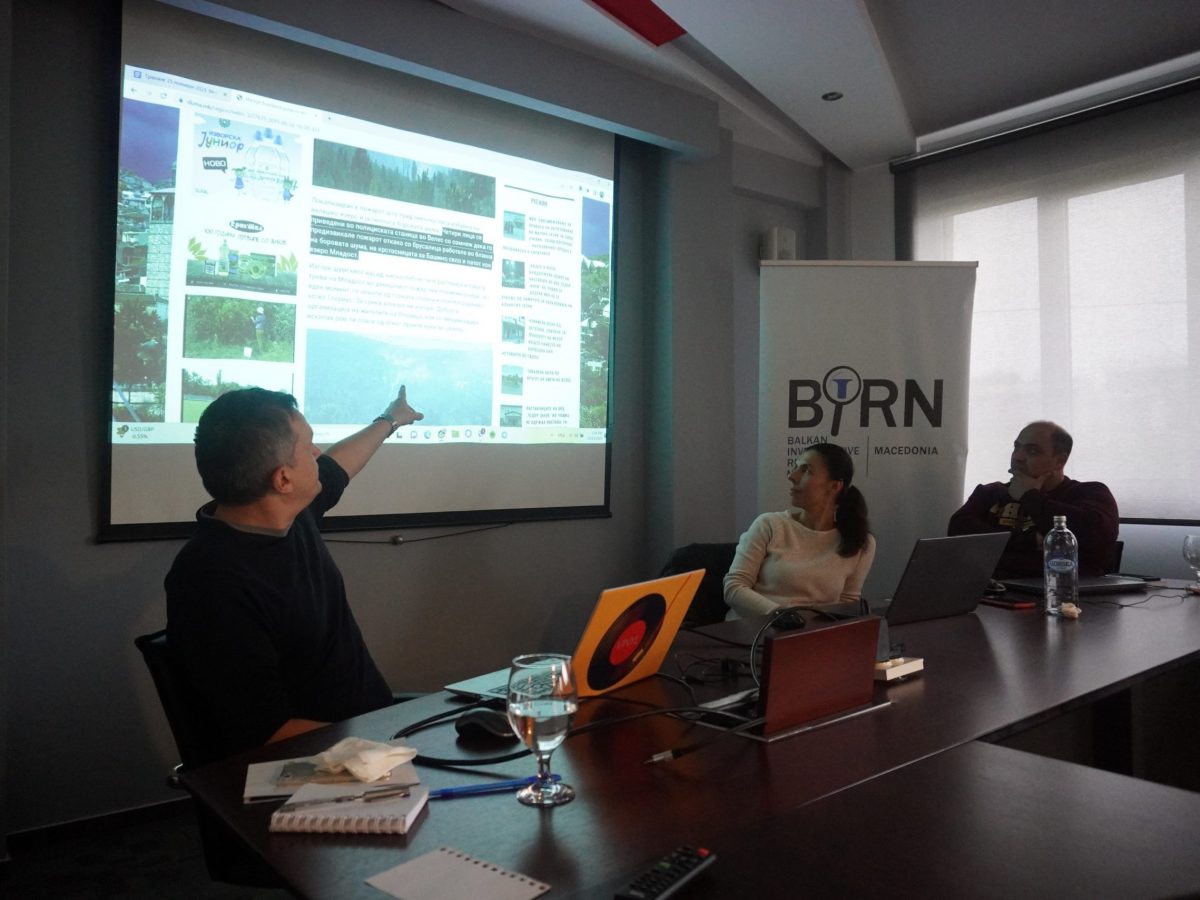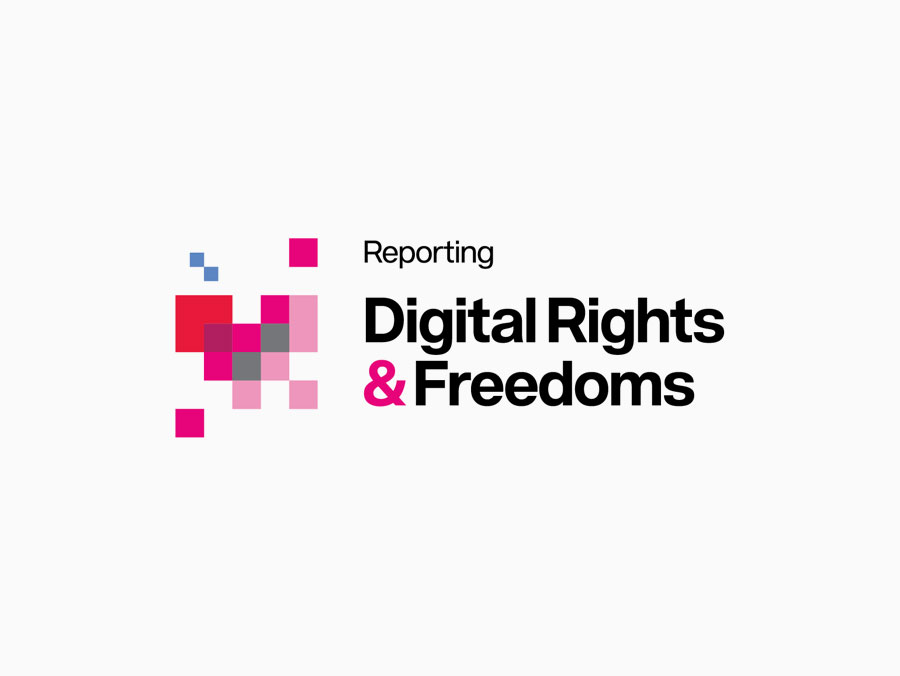
BIRN is organising a three-day training course for journalists, designed to respond to growing concerns about the violation of digital rights in the Balkans. The training, which will be held in Mavrovo from June 8-10, 2023, will provide participants with a comprehensive understanding of digital rights, focusing on reporting violations, content blocking, manipulation and propaganda in the digital realm.
With technology evolving rapidly, it’s essential for journalists to stay up-to-date on the latest methods and strategies to uncover and appropriately report on digital rights violations. Numerous reports from international human rights organisations, media organisations, civil society organisations and international institutions indicate a worrying situation regarding digital rights in the Balkans, emphasising the need for continuous efforts to improve the protection and promotion of these rights, but also to improve journalists’ abilities to produce good reporting on these issues. Although many countries in the region have regulatory frameworks that formally address these issues, challenges remain, such as online surveillance, censorship and data privacy issues.
Frequent cyber-attacks and online harassment also threaten the safety of many people, including journalists, who are often the target of online attacks. However, many journalists from the region may not be fully aware of the extent of digital rights violations or the underlying legal and technological aspects that lead to such violations.
BIRN’s training course will enable ten selected journalists from North Macedonia to gain a comprehensive understanding of the relevant issues, helping them to identify and report on digital rights violations more effectively. Journalists play a key role in raising public awareness and driving change. This course will give journalists the necessary skills and knowledge and enable them to produce impactful stories that can contribute to a more informed public debate and ultimately lead to policy changes that protect and promote digital rights in the Balkans.
Who can apply?
Any journalist from North Macedonia who is interested in digital rights and has previous journalistic experience. A selection committee will evaluate the applications and select ten (10) journalists who will participate in the training.
How to apply?
Submit the following application form and your CV to [email protected] no later than May 25, 2023 at 5pm CET with the subject line: Digital Rights Reporting Training for Journalists North Macedonia.
Place and date:
The training course will take place in Mavrovo, North Macedonia, from June 8 to June 10, 2023. The organisers will fully cover the costs of accommodation, food and transport for all participants. The working language of the training is Macedonian and Serbian.
What to expect from the training?
The training will provide the selected journalists with basic skills and knowledge to effectively investigate and report on digital rights violations in a time of dynamic technological advances. The training will cover various aspects of digital rights reporting, including identifying and collecting digital rights violations, categorising these violations and reporting on individual cases and broader trends.
The training will offer valuable educational insights and provide an opportunity to connect with fellow journalists and experts working in the field of digital rights.
A unique opportunity after training
After completing the training, journalists will have the opportunity to pitch their story ideas to BIRN. Selected journalists will receive on-the-job mentoring and financial support to research and apply their newly-acquired skills to implement their ideas on cases that involve infringements, content blocking, filtering, manipulation or propaganda in the digital environment.
Отворен повик: БИРН обука за дигитални права за новинари
Што се дигитални права, кој и како ги прекршува, и зошто е важно да се следи и да се известува за нивната примена? Како да ги препознаете проблемите во оваа област, да подготвите стории и да добиете менторска и финансиска поддршка за нивната изработка и објавување?
БИРН организира тридневна обука наменета за новинари, a дизајнирана да одговори на зголемената загриженост за кршењето на дигиталните права на Балканот, Обуката, која ќе се одржи во Маврово од 08-10 Јуни 2023 година, ќе им овозможи на учесниците сеопфатно разбирање на дигиталните права, фокусирајќи се на пријавување прекршувања, блокирање содржини, манипулации и пропаганда во дигиталната област.
Поради брзиот развој на технологијата од суштинско значење е новинарите да останат во тек со најновите методи и стратегии за откривање и соодветно известување за кршењето на дигиталните права. Бројни извештаи од меѓународни организации за човекови права, медиумски организации, граѓански организации и меѓународни институции укажуваат на загрижувачка ситуација во однос на дигиталните права на Балканот, нагласувајќи ја потребата од континуирани напори за подобрување на заштитата и промоцијата на овие права, но и за подобрување на новинарските способности за креирање на адекватен извештај за овие прашања. И покрај тоа што многу земји од регионот имаат регулаторни рамки кои формално ги решаваат овие прашања, предизвиците и понатаму постојат, како што се онлајн надзорот, цензурата и прашањата за приватноста на податоците.
Честите сајбер напади и онлајн вознемирување, исто така, ја загрозуваат безбедноста и на многумина вклучувајќи ги и новинарите, кои често се мета на онлајн напади. Сепак, многу новинари од регионот можеби не се целосно свесни за степенот на прекршување на дигиталните права или за основните правни и технолошки аспекти кои водат до вакви прекршувања.
Обуката на БИРН ќе им овозможи на десет избрани новинари од Северна Македонија сеопфатно да ги разберат релевантните прашања, помагајќи им да ги идентификуваат и поефикасно да известуваат за кршењето на дигиталните права. Новинарите играат клучна улога во подигање на јавната свест и поттикнување на промени. Со оваа обука тие ќе стекнат потребни вештини и знаења и ќе им се овозможи да продуцираат влијателни стории кои можат да придонесат за поинформирана јавна дебата и на крајот да доведат до промени на политиките кои ги штитат и промовираат дигиталните права на Балканот.
Кој може да аплицира?
Сите новинари од Северна Македонија кои покажуваат интерес во областа на дигиталните права и поседуваат претходно новинарско искуство. Комисијата ќе ги оцени апликациите и ќе избере десет (10) новинари кои ќе учествуваат на обуката
Како да аплицирате?
За да аплицирате, доставете го следниот формулар за апликација заедно со вашето CV најдоцна до 25 Мај 2023 со наслов: Обука за известување за дигитални права за новинари на [email protected] .
Место и датум:
Обуката ќе се одржи во Маврово 08-10 Јуни 2023 година. Организаторите целосно ќе ги покријат трошоците за сместување, храна и превоз за сите учесници. Работен јазик на обуката е македонски и српски.
Што да очекувате од обуката?
Обуката ќе им обезбеди на избраните новинари основни вештини и знаења за ефективно да истражуваат и известуваат за кршење на дигиталните права во сферата на динамичното напредување на технологијата. Обуката ќе опфати различни аспекти на известувањето за дигиталните права, вклучително и идентификување и собирање прекршувања на дигиталните права, категоризирање на овие повреди и известување за поединечни случаи и пошироки трендови.
Обуката ќе понуди вредни едукативни сознанија и ќе обезбеди можност за поврзување со колеги новинари и експерти кои работат во областа на дигиталните права.
Уникатна можност по обуката
По завршувањето на обуката, новинарите ќе имаат можност да ги пренесат своите идеи за стории до БИРН. Избраните новинари ќе добијат менторство на работното место и финансиска поддршка за истражување и примена на нивните новостекнати вештини за спроведување на нивните идеи за случаи кои вклучуваат прекршување, блокирање содржина, филтрирање, манипулации и пропаганда во дигиталната средина.













